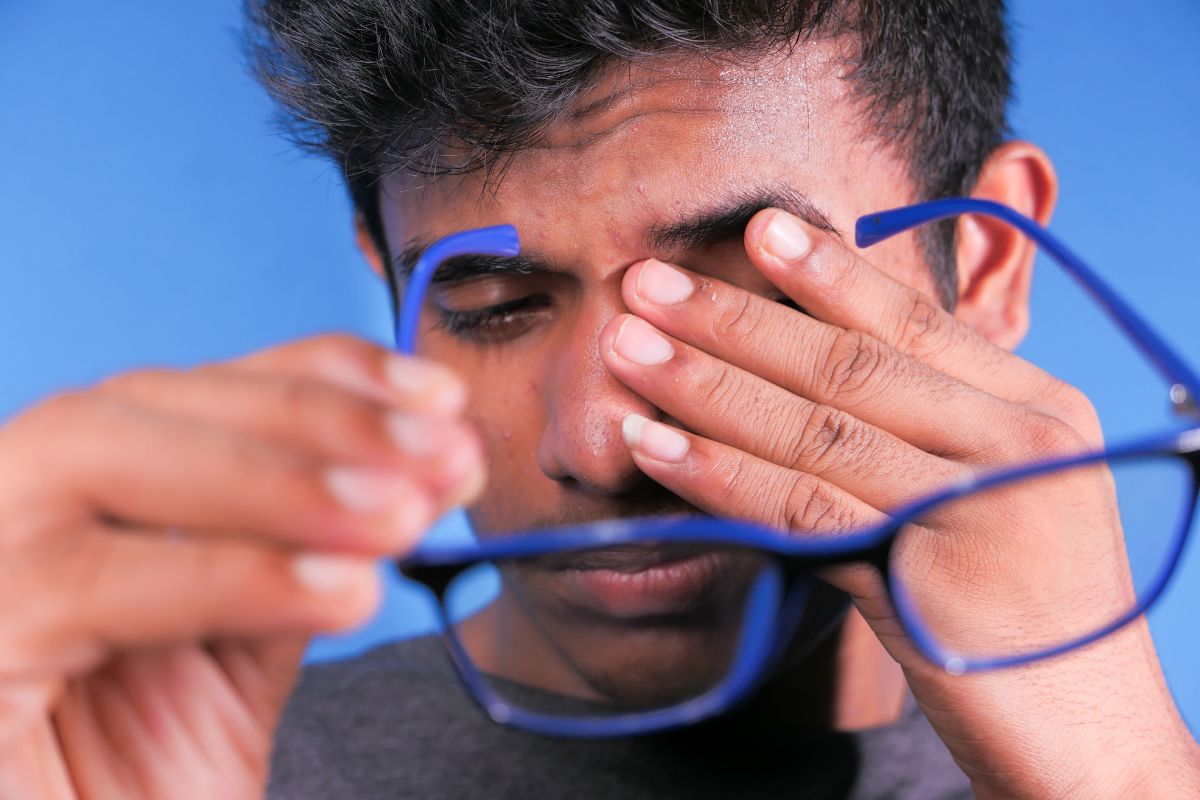When Tired Eyes Signal It’s Time for a Check-Up
In today's fast-paced, digitally driven world, our eyes are constantly under siege. We spend countless hours staring at screens, neglecting the delicate organs that allow us to experience the vibrant tapestry of life. The result? Tired eyes, a ubiquitous complaint that often signals something more than just a long day at the office. While occasional eye fatigue is perfectly normal, persistent discomfort or changes in vision demand immediate attention. Ignoring these subtle yet persistent warnings can lead to more serious complications down the line, potentially compromising your precious vision. This comprehensive guide explores the telltale signs that it's time to schedule a comprehensive eye checkup and suggests ways to find immediate relief.
Understanding the Language of Tired Eyes: Decoding the Symptoms
The symptoms of tired eyes can be subtle, often masked by our busy schedules and the persistent hum of everyday life. However, paying close attention to these warning signals is paramount to maintaining healthy vision. Persistent symptoms go beyond simple eye strain and often signify underlying issues. These can include:
- Persistent Dryness and Burning: This isn't the occasional dryness from a long flight or a dry office environment. We are talking about a persistent, almost constant feeling of dryness and a burning sensation that interferes with daily activities. This persistent dryness can be incredibly disruptive, making it difficult to focus on work, read, or even enjoy simple pleasures like watching a movie. The discomfort can be significant, impacting your overall mood and productivity.
- Blurred Vision: Experiencing temporary blurry vision is common, but persistent blurring, even after blinking or resting, requires immediate attention. It could indicate various eye conditions requiring prompt medical diagnosis. This blurring might be intermittent, appearing and disappearing, or it could be constant, making even everyday tasks challenging. The severity can range from slight haziness to significant impairment, impacting your ability to drive, read, or perform other vital functions.
- Recurring Headaches: Headaches, particularly those localized around the eyes or temples, can be a symptom of eye strain. If these headaches occur regularly and are not relieved by simple analgesics, consult an eye doctor. These headaches aren't just fleeting; they are recurrent, possibly accompanied by nausea or sensitivity to light, suggesting a more serious underlying issue that warrants medical attention.
- Eye Redness and Swelling: Persistent redness or swelling around the eyes may indicate an infection or allergic reaction. Unusual redness is not to be taken lightly. This redness can be accompanied by itching, a gritty sensation, or even the discharge of fluid. These symptoms could point to a variety of conditions, from conjunctivitis to more serious infections.
- Increased Light Sensitivity (Photophobia): Finding yourself increasingly sensitive to light, even in normal lighting conditions, may indicate an underlying eye condition that needs attention. This sensitivity can range from mild discomfort to severe pain, making it difficult to function in even moderately lit environments. It can significantly impact daily life.
- Double Vision (Diplopia): Experiencing double vision, even intermittently, is a serious symptom that requires immediate medical evaluation. It can indicate muscle imbalances or neurological problems. Double vision can be extremely disorienting and dangerous, especially when driving or operating machinery. It demands prompt attention from an ophthalmologist or neurologist.
If you experience any of these symptoms frequently or with increasing intensity, don't delay seeking professional help. Ignoring these crucial signs can lead to irreversible damage. Early detection is paramount in preventing long-term complications and preserving your vision.
The Crucial Role of Regular Eye Exams: Prevention is Key
Regular eye checkups are not just a recommendation; they're a vital investment in your long-term eye health. Many eye conditions, particularly those that affect vision subtly, such as glaucoma and macular degeneration, often develop without noticeable symptoms in their early stages. Regular eye exams enable early detection of these conditions, allowing for timely intervention, treatment, and preventing potential vision loss. Experts generally recommend comprehensive eye exams at least once every two years, with more frequent evaluations if you have a family history of eye problems or existing eye conditions. Early detection can be the difference between preserving your vision and experiencing significant impairment.
Consider the potential impact on your life if vision loss occurs. Think about the activities you enjoy – reading, driving, spending time with loved ones, pursuing hobbies. Many daily activities rely on good vision, and the loss of it can be devastating. Regular checkups empower you to safeguard your sight and maintain the quality of your life.
Finding Solace: Soothing Tired Eyes with Wise Quest Soothing Eye Patches
While regular checkups are vital for long-term eye health, you can take proactive steps to manage and soothe tired, strained eyes. Consider incorporating Wise Quest Soothing Eye Patches - 1-Month Care Pack into your daily routine.

These innovative eye patches, infused with the time-tested wisdom of traditional Chinese herbal medicine, provide soothing relief from various eye ailments. They are designed to alleviate eye fatigue, dryness, astringency, redness, and swelling—common consequences of prolonged screen time and environmental stressors. The carefully selected blend of herbs promotes healthy blood circulation around the eyes, promoting healing and reducing inflammation. These patches offer a gentle yet effective way to soothe tired eyes and improve overall eye comfort. While not a replacement for professional medical care, they can offer welcome relief while you schedule that important eye checkup. The cooling sensation provides immediate comfort, while the herbal ingredients work to address the root causes of eye discomfort. They're a simple yet effective addition to your self-care routine.
Proactive Steps for Optimal Eye Health: Beyond the Checkup
Maintaining good eye health is a holistic endeavor. While regular checkups and using products like Wise Quest Soothing Eye Patches are important, integrating these additional tips into your daily life can significantly enhance your eye health:
- Embrace the 20-20-20 Rule: Every 20 minutes, take a 20-second break to focus on an object 20 feet away. This simple exercise helps relax your eye muscles and reduce strain. Make this a habit – set a timer on your phone or computer to remind you. The small effort can make a big difference in reducing eye strain over the course of a day.
- Optimize Your Lighting: Ensure adequate, yet not harsh, lighting when reading or working on screens. Avoid glare and adjust your screen brightness accordingly. Consider using a screen filter to reduce glare and eye strain, especially during evening hours. A well-lit workspace is essential for reducing eye strain. Position your lighting to avoid glare directly on your screen.
- Protect Your Eyes: Wear appropriate protective eyewear during activities that may pose a risk to your eyes, such as sports or handling chemicals. This includes safety glasses for work, protective goggles for sports, and sunglasses with UV protection to shield your eyes from harmful sun rays.
- Nourish Your Eyes from Within: Maintain a balanced diet rich in antioxidants, lutein, and zeaxanthin, which are crucial for maintaining eye health. These nutrients are found in leafy green vegetables, fruits, and nuts. Consider adding supplements to your diet if you feel you are lacking these vital nutrients. A healthy diet supports overall wellbeing, including eye health.
- Limit Screen Time: While completely avoiding screens is often unrealistic, try to limit your screen time, especially before bed. Prolonged screen use contributes significantly to digital eye strain. Schedule regular breaks throughout the day and avoid prolonged periods of continuous screen use. The blue light emitted from screens can be particularly harmful, so consider using blue light filters.
- Stay Hydrated: Dehydration can exacerbate dryness and eye strain. Make sure you drink plenty of water throughout the day. Keep a water bottle at your desk or workstation to remind yourself to stay hydrated. The recommended daily intake of water varies based on individual factors, so consult your doctor if you have questions.
- Practice Good Eye Hygiene: Wash your hands before touching your eyes to prevent infection. Avoid rubbing your eyes excessively, which can further irritate and damage them. Use artificial tears as needed to lubricate your eyes.
Conclusion: Prioritizing Your Vision
Persistent tired eyes are not just a minor inconvenience; they can be a critical sign of underlying issues. Prioritizing your eye health is non-negotiable. By scheduling regular comprehensive eye checkups, incorporating helpful products such as Wise Quest Soothing Eye Patches for relief, and adopting healthy lifestyle habits, you can protect your vision and enjoy the beauty of the world for years to come. Don't wait for serious problems to develop – take proactive steps to preserve the most precious of your senses. Remember, your vision is invaluable – cherish it and protect it.









